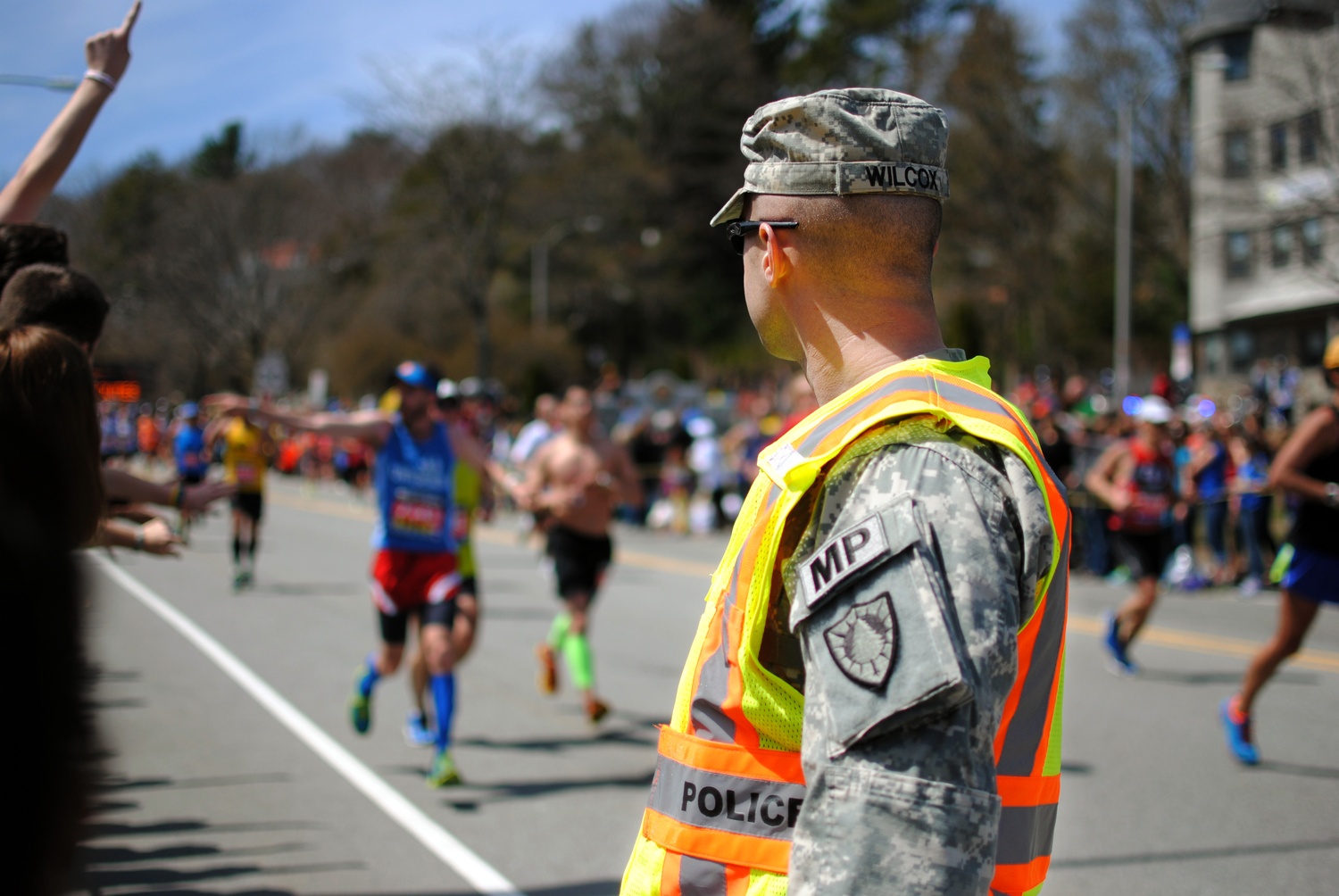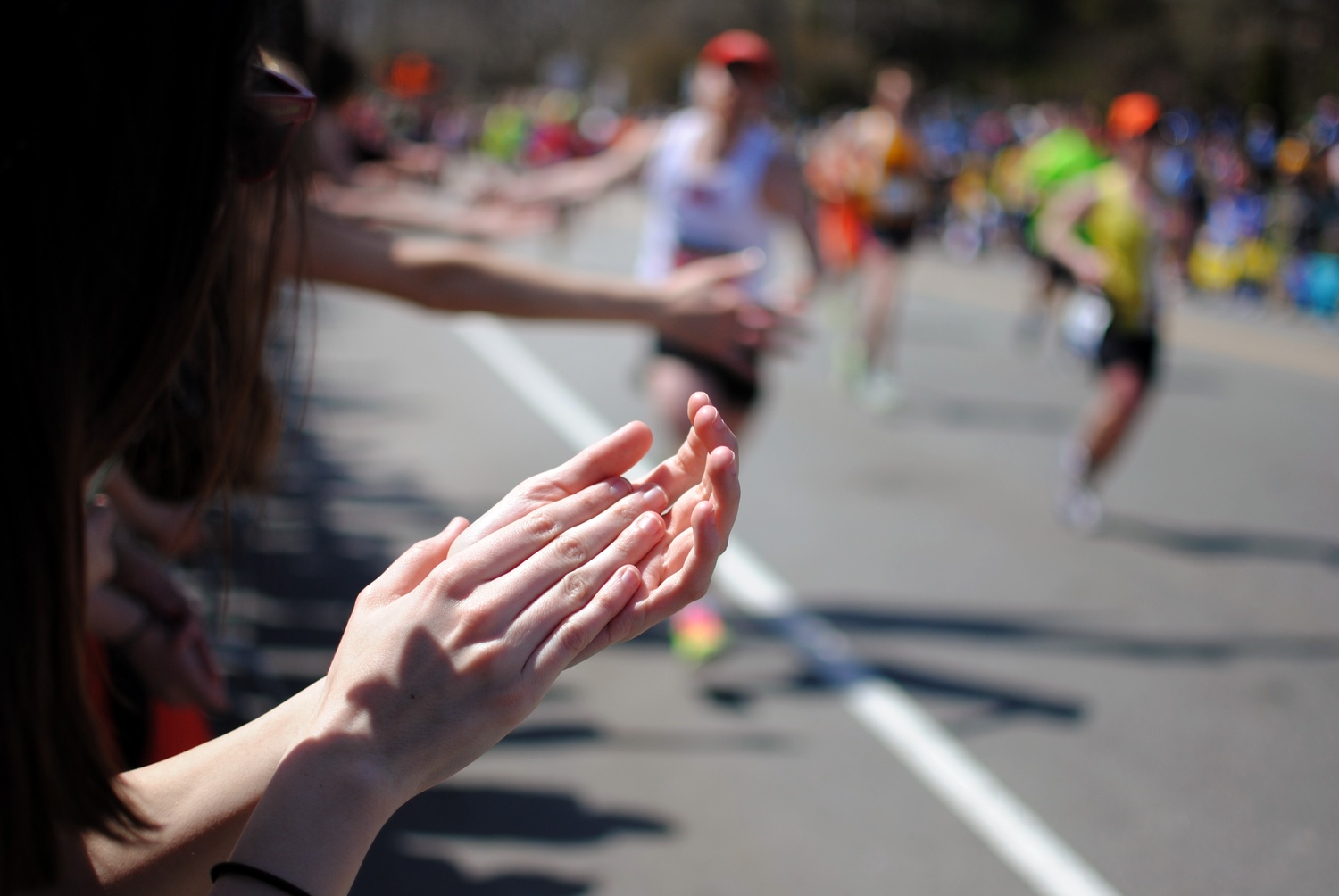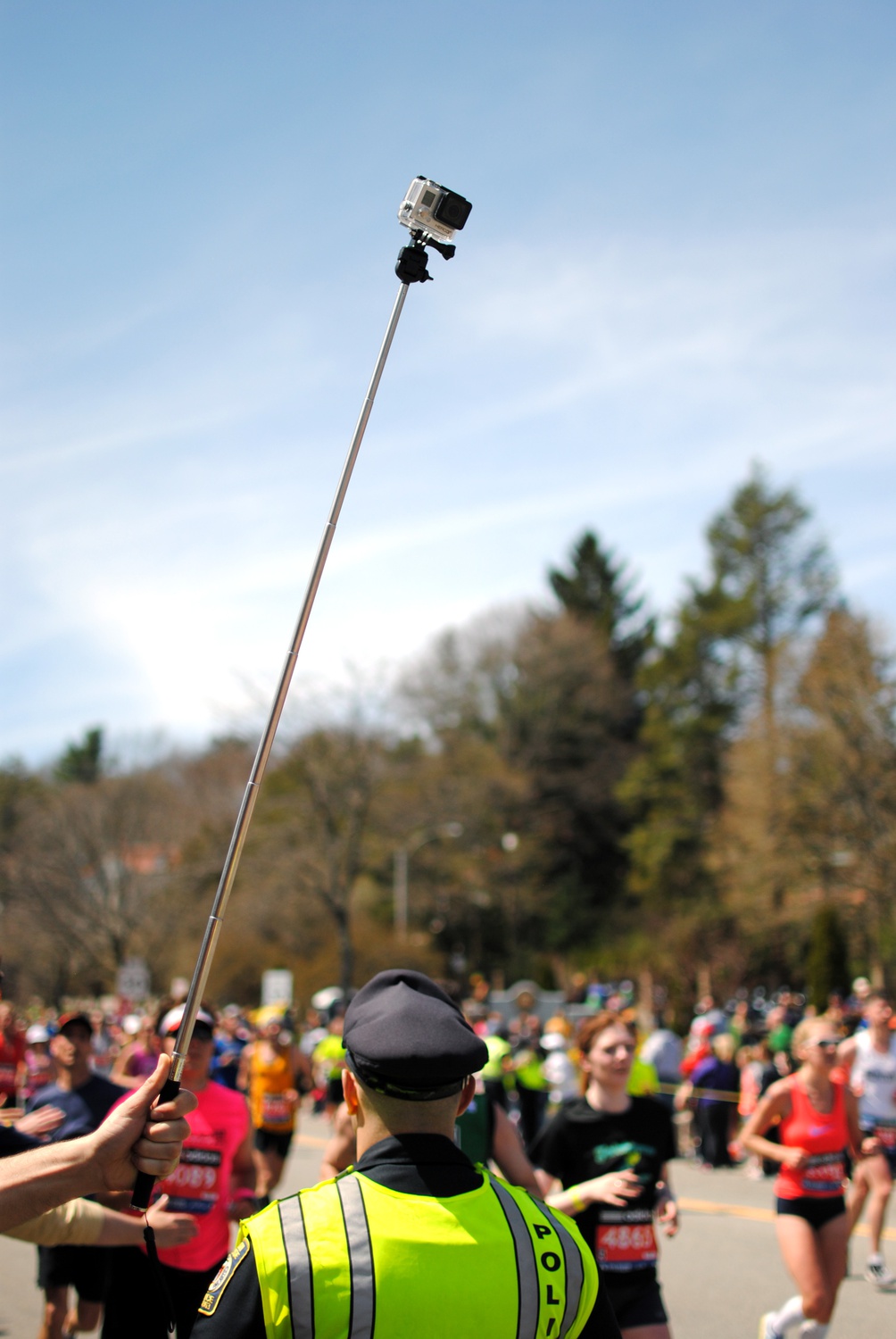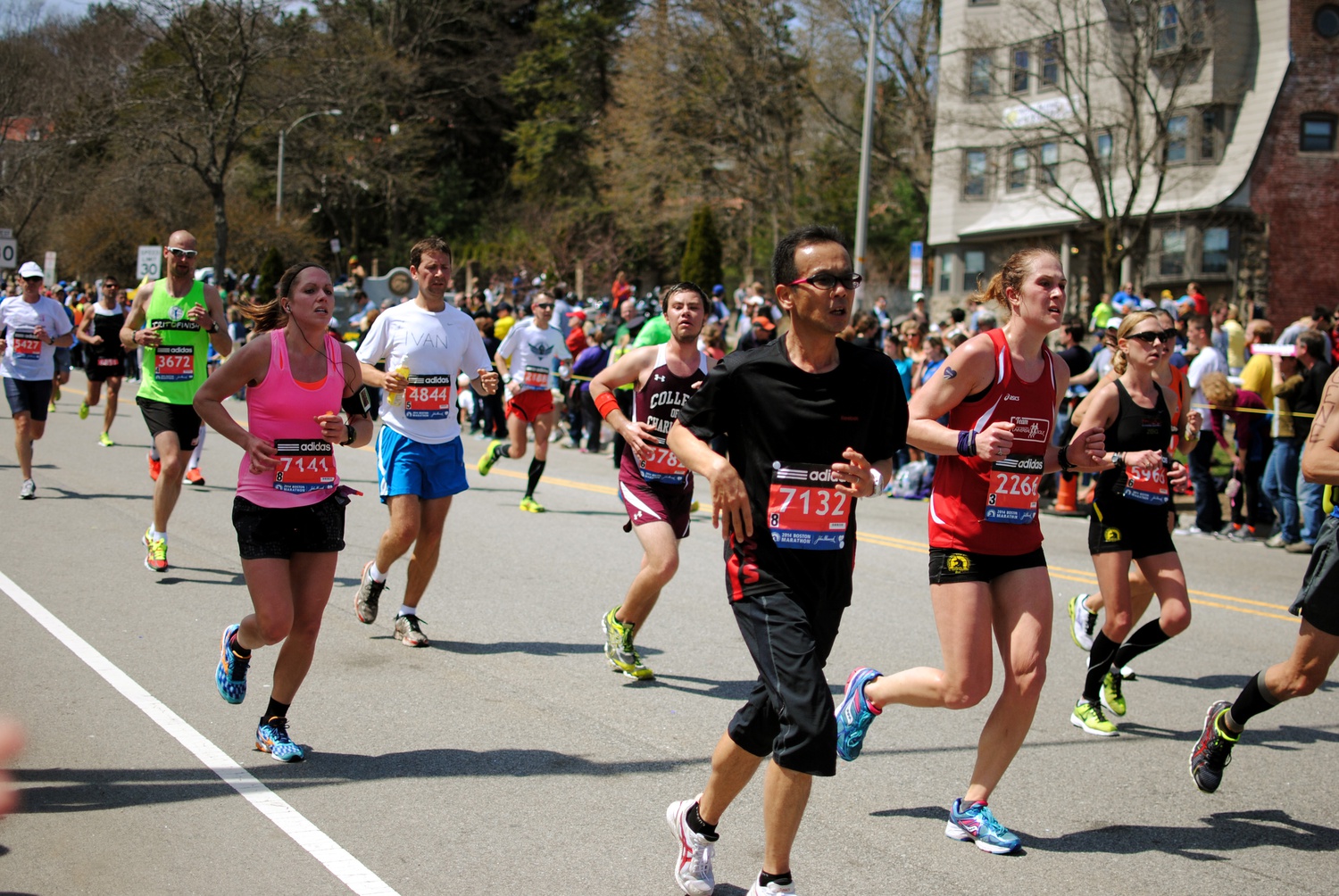
News
Harvard Researchers Develop AI-Driven Framework To Study Social Interactions, A Step Forward for Autism Research

News
Harvard Innovation Labs Announces 25 President’s Innovation Challenge Finalists

News
Graduate Student Council To Vote on Meeting Attendance Policy

News
Pop Hits and Politics: At Yardfest, Students Dance to Bedingfield and a Student Band Condemns Trump

News
Billionaire Investor Gerald Chan Under Scrutiny for Neglect of Historic Harvard Square Theater
One Year after Bombings, Patriotism and Resilience at the Marathon

Just more than a year after two deadly explosions disrupted the 2013 Boston Marathon, the only sound that could be heard at the finish line this year was the cheering of nearly one million spectators vocalizing their support for a record 36,000 runners.
Concerns about security lingered amongst marathon attendees, many of whom experienced the fear and chaos of last year’s bombings firsthand. Amid a heightened security presence, however, a sense of pride, remembrance, and resilience prevailed, with the excitement and energy of the crowd only boosted by a landmark victory in the men’s race.
For many, the Boston Marathon, now in its 118th year, has become an annual tradition. But numerous spectators and runners, including more than two dozen participants and many more spectators from the Harvard community, said that the patriotic spirit and determination following last year’s tragedy made the 2014 marathon particularly memorable.
Professors, administrators, and students from across the University made the trek across the river early Monday morning to join thousands of runners at the starting line in Hopkinton, Mass. Many of these Harvard affiliates were returning to the race after their marathon experience was cut short by the bombings last year.
Chinese history professor Michael A. Szonyi, who was only 200 meters away from the end of the course when the 2013 race was halted, said the goal this year was to cross the finish line.
“I had a moment where I choked up at the spot where I was stopped last year,” Szonyi said.
Szonyi, along with many other members of the Harvard community who were at the race, said that this year’s crowd was particularly enthusiastic.
“I’ve never experienced anything like that in my life and I probably never will again,” said human evolutionary biology department chair Daniel E. Lieberman ’86, who was running in the marathon for the fourth time. “This one was special above all others.”
Anne F. Wenk ’15, who was running the marathon for the first time, was buoyed by spectators as well. Wenk participated in the marathon through the Harvard College Marathon Challenge, an organization through which runners earn a spot in the marathon by fundraising for charities.
“It’s a hard race, it’s a long race, but there was so much cheering and so much support,” Wenk said. “Boston Strong was everywhere.”
Security officials were everywhere, too. Scattered among cheering spectators and runners, local police officers, FBI agents, and even the Secretary of Homeland Security Jeh Johnson remained present and visible for the duration of the event. Spectators were submitted to bag checks and a second set of physical barriers and law enforcement officers heavily restricted access around the finish line.
Nick Guertin, a senior at Northeastern University who volunteered as a race marshall for the second time, said the new security arrangements complicated the spectator experience in some ways but ensured overall that many attendees felt safe at the marathon site.
“It’s been generally comparable to when I was here three years ago—I think people are more on guard but there’s generally a determined feeling,” Guertin said.

Joseph Robertfonts, who came to the race from Rhode Island, said he felt a mix of emotions in the air. “I feel very happy that people are here supporting the race but I definitely also feel melancholy about what happened last year,” Robertfonts said. “The scar is healing but it’s going to be there.”
The overwhelming feelings of community pride were only heightened by the historic victory of Meb Keflezighi, a 39-year-old living in San Diego who became the first American male to win the Boston Marathon since 1983.
The crowd erupted in cheers and chants of “U-S-A!” as Keflezighi fought off another contender late in the race, setting a personal record time of 2:08:37. He later stood atop the victor’s podium as the American national anthem was played, bringing him and many in the crowd to tears.

Keflezighi’s victory capped off an exciting and significant day, said M’Shell Patterson, a New Yorker who was attending her third marathon as a volunteer. “This year more than ever, it felt like we had to step up and stand for something,” Patterson said. “[Keflezighi’s victory] just put icing on the cake. It’s the right year for an American to win this marathon.”
For Charles A. Scherr ’17, who attended Monday’s race as a spectator, the take-home message was one of inspiration and community spirit.
“I was definitely inspired. As a marathon runner...I felt even more inspired leaving the Boston Marathon than when I ran the New York Marathon,” Scherr said. “Today I feel very proud to go to school in Boston.”
—Staff writer Ivan B. K. Levingston can be reached at Ivan.Levingston@thecrimson.com. Follow him on Twitter @IvanLevingston.
—Staff writer Tyler S. Olkowski can be reached at tyler.olkowski@thecrimson.com. Follow him on Twitter @OlkowskiTyler.
Want to keep up with breaking news? Subscribe to our email newsletter.
Related Articles
From Our Advertisers

Over 300+ courses at prestigious colleges and universities in the US and UK are at your disposal.

Where you should have gotten your protein since 1998.

Serve as a proctor for Harvard Summer School (HSS) students, either in the Secondary School Program (SSP), General Program (GP), or Pre-College Program.

With an increasingly competitive Law School admissions process, it's important to understand what makes an applicant stand out.

Welcome to your one-stop gifting destination for men and women—it's like your neighborhood holiday shop, but way cooler.

HUSL seeks to create and empower a community of students who are seeking pathways into the Sports Business Industry.



